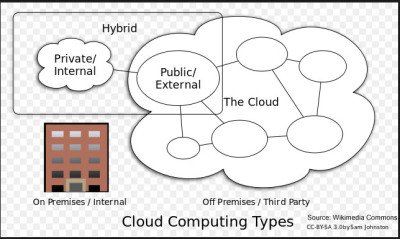What is Hybrid Cloud
There are public clouds and there are private clouds. In between the two, lies the Hybrid cloud. Anyway, coming back to what is Hybrid Cloud, we have to first understand public and private clouds. The clouds that you see in the form of OneDrive, Google Drive, Canonical, etc. are the most popular public clouds. They are called public because data is stored on the same servers irrespective of where the person lives or what he or she is storing. There are concerns if the service provider can look into the data being stored (which is again a deterrent for cloud usage). In other words, However, looking at the last point, government rules can coerce the cloud provider to provide data about a client to the federal agencies or others related to it – without the knowledge of the user. Thus, the breach of data factor is not feasible to implement. Private clouds are safer when it comes to storing data. Please note that I’ve been using the storage of data as an example as it is easier to understand. Cloud computing, as such, can be anything from storage of data to providing a platform as a service where users can not only create their programs but test them under different conditions. But implementing a private cloud is a complicated process. You’ll need additional servers and that is just the beginning. You need IT admins who understand the concepts and features of the cloud. Then you would need programmers who can create and maintain software where human interference is negligible. Then, the cloud should be made accessible to all the branches of the organization. Finally, you have to take care of hackers, etc. and make the cloud as hacker-proof as possible. To avoid all these complications, organizations tend to use hybrid clouds. That is, some of the processes of the organization run on the private cloud while others run on complicated clouds such as Azure.
Hybrid Cloud definition
There is no solid definition for hybrid clouds. Actually, there is no solid definition for cloud computing. There are different explanations that talk about the criteria of cloud computing. And these criteria too, vary based upon the perspectives of users. Anyway, I will try to define a hybrid cloud as follows: Further, the question arises as to why the Hybrid cloud. We talked about the private cloud above and found that it is very complicated. A hybrid cloud runs simple processes on own private cloud and uses public clouds for complicated processes. That way, you cut down on not only expenses but also on different complications that may hinder or delay your business processes. While you can build a private cloud (for use with a Hybrid cloud) on your own, many companies (such as IBM) provide their own engineers to streamline your private cloud with the public cloud. That again saves on expenses while relieving you from hunting for proper know-how to set up your private cloud that is used in conjunction with any public cloud. To sum up: The only problem with clouds is that the legal rules vary across countries. In the case of cloud computing, if any dispute arises, the rules of the area where the service providers registered their service, apply. This is why Microsoft stresses on the universalization of legal rules and regulations across the globe. It would make it easier for both service providers and clients if that is achieved.
Benefits and advantages of Hybrid Clouds
References TechPrResearch.com Survey on Hybrid Clouds. You might want to have a look at these link too:
